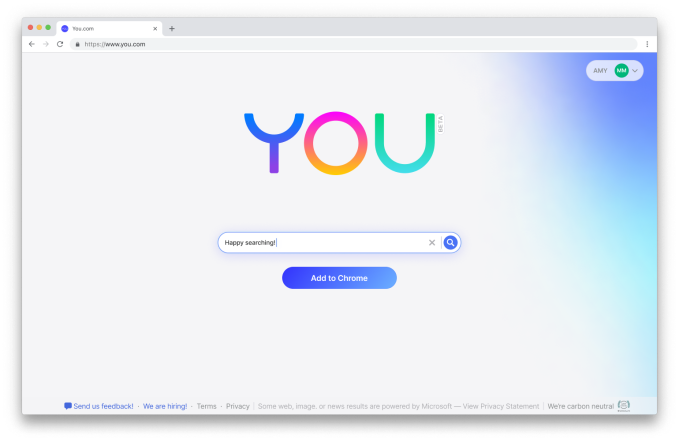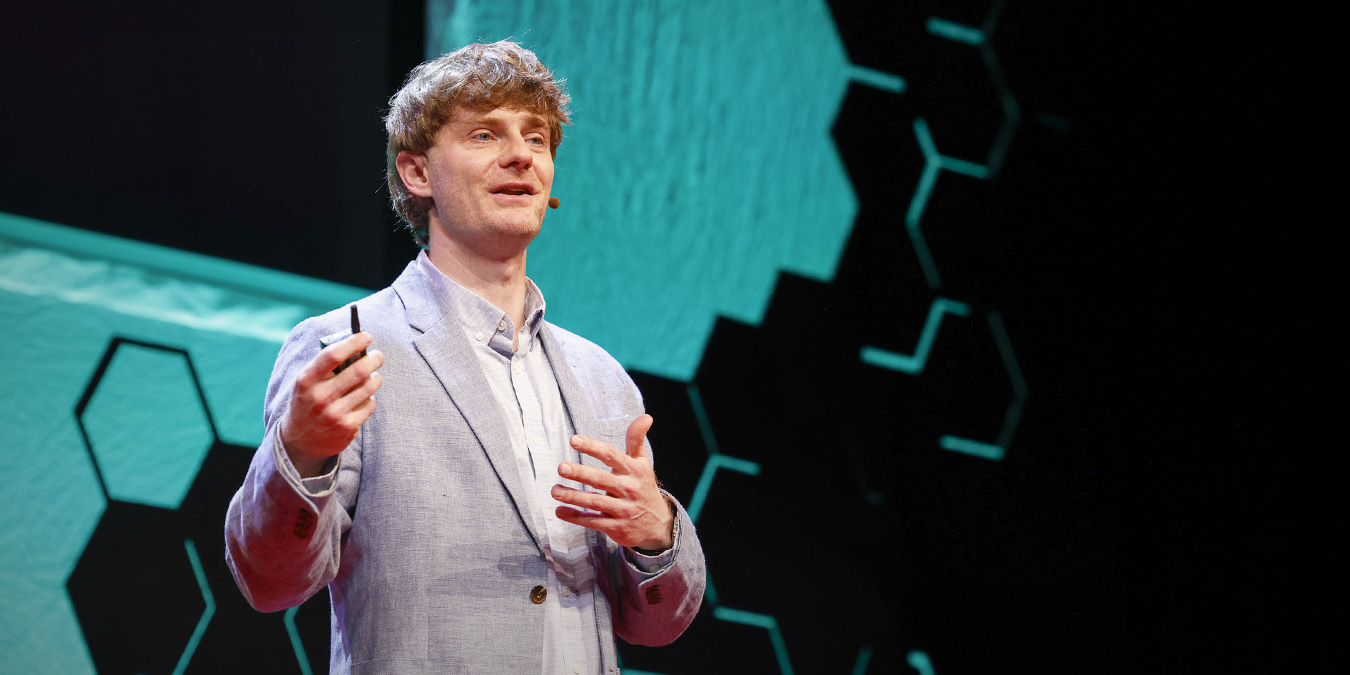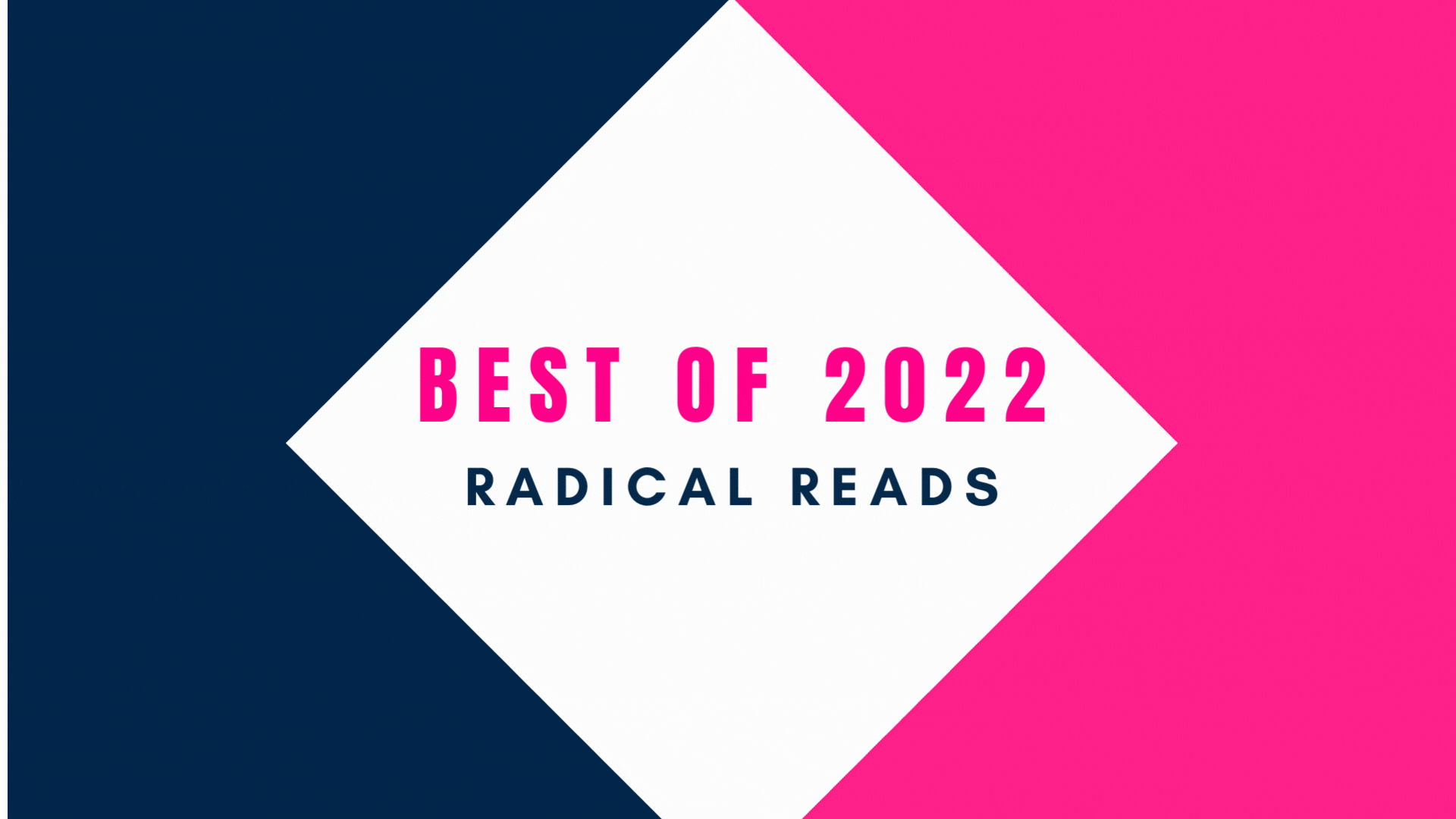The world needs a better search engine. That is the fundamental thesis behind the Radical Ventures lead investment in You.com’s Series A, announced last week. In a David vs Goliath battle, we are placing our bet on the upstart led by an extraordinary team leveraging technology that makes it possible to compete with one of the tech world’s most entrenched incumbents.
You.com was founded by Richard Socher, former Chief Scientist at Salesforce and one of the world’s most cited researchers in natural language processing (NLP), and Bryan McCann, who led research and NLP teams at Salesforce.
They have built a customizable search platform that integrates both the web results of a standard search engine as well as embedded applications offering richer experiences from over 150 sources such as Reddit, Stack Overflow, GitHub, and Arxiv, across different categories including coding, shopping, recipes, and web3.
Why do we need a new search engine? There is a growing dissatisfaction and lack of trust in mainstream search, which is dependent on ad revenue. Users feel search results are flooded with paid content, and are tired of having their intent monetized. These intrusive ads also rely on tracking cookies that target customers for behavioural information.
With You.com, users have control. They control the powerful AI behind the platform by personalizing and customizing sources they want to see, the order of the results, and the amount of information they want to share about their searches and web activity. You.com has also built apps into the platform that enable users to explicitly employ AI to perform an action within the search results: YouWrite (AI-powered text generation for students and copywriters) and Code Complete (AI-powered code generation tool for developers).
You.com recently launched YouCode, the first open search platform for developers. You.com’s unique growth strategy – offering search products like YouCode tailored to different audiences built by extending the platform – has allowed the company to grow a user base in 6 months that alternative search engines took years to achieve. YouCode is just one example of how user-centric search can be a productivity force multiplier in people’s daily workflows. The company’s use of AI to get things done for its users has the potential to completely shift what it means to be an Internet search engine today.
Our team at Radical Ventures has significant prior experience building search products and has had a front-row seat to the latest advances in NLP over the past few years. The capabilities of advanced language models are now able to outperform rules-based systems in many domains. For search in particular, this means a more nuanced understanding of a user’s intent, more personalized results, and a fundamentally better search experience. We had been looking for a team to partner with in the search category for a few years, and are excited to partner with Richard and Bryan as they bring much-needed innovation to the field of search by giving users control of their online experience.
As Dan Primack wrote in Axios Pro Rata last week: ”You.com is a highest degree of difficulty startup with vast reward potential. Or, as Google might put it, a moonshot.”
AI News This Week
-
Doctors using AI catch breast cancer more often than either does alone (MIT Technology Review)
A doctor and AI working together could do better than either alone. AI software and a radiologist were 3.6% better at detecting breast cancer together than either screening for the cancer alone, according to a study published in The Lancet Digital Health. This is the first large-scale study to directly compare an AI’s performance in breast cancer screening according to whether it is used alone or to assist a human expert. The hope is that such AI systems could save lives by detecting cancers doctors miss, free up radiologists to see more patients, and ease the burden in places where there is a dire lack of specialists. The researchers suggest that the software could help detect more cancer cases and cut down on radiologists’ workloads.
-
Machine learning identifies crater that ejected famous Martian rock (Phys.org)
Scientists led by Australia’s Curtin University used AI to help identify a Mars crater that ejected a 2.1-billion-year-old meteorite that crashed in the Sahara desert. The famous meteorite, nicknamed Black Beauty, was found in Africa in 2011. It’s unique in that it is the only found meteorite from Mars that is breccia, a type of sedimentary rock made of angular, broken rock fragments cemented together. Before the research, scientists did not know the meteorite’s origin site. To determine this, they developed a machine learning algorithm to analyze the millions of craters on the Martian surface visible in high-resolution photos. The scientists found and listed around 90 million craters using the AI software and a supercomputer. Further research enabled them to narrow down the list of candidates, eventually singling out one crater with the same properties as Black Beauty.
-
AI learns what an infant knows about the physical world (Scientific American)
To build AI systems capable of broadly generalizing across different use cases and experiences, researchers are looking to children for inspiration. DeepMind researchers have released an “intuitive physics” model to try to capture the knowledge a baby is born with in an AI system. We previously explored this topic in our Radical Talks podcast with renowned psychologist Alison Gopnik. She discussed how AI systems may benefit from a better understanding of the way children learn and play. Like scientists, children constantly test hypotheses to better understand the world. Gopnik argues that the causal inference demonstrated by a child offers clues into how to build more resilient AI systems.
-
AI Champions Awards winners revealed (AIMed)
The winners of this year’s prestigious AI Champions Awards have been revealed as part of AIMed’s Global Summit in San Francisco. The Temerty Centre for Artificial Intelligence Research and Education in Medicine (T-CAIREM) at the University of Toronto received the Hospital/Institution of the Year award for 2022. Muhammad Mamdani, T-CAIREM Director and Co-founder of Radical Ventures portfolio company Signal1, accepted the award. As the first centre of its kind in Canada, T-CAIREM champions the development and application of AI in medicine both nationally and internationally through world-class initiatives in education, research, and enabling data environments. They join previous winners, including Eric Topol, Jeremy Howard, and Stanford’s Center for Artificial Intelligence in Medicine and Imaging.
-
When AI makes art, humans supply the creative spark (Wired)
The Internet loves generating art with AI. Half of the fun is reading the wacky prompts created by the human users. The best results are often from individuals who understand how these models work with the prompts. Models such as DALL-E or Make-A-Scene, at first believed to be the end of human artists, are now applauded as tools to elevate human creativity by artists themselves. Some users, such as digital artist Noah Bradley, believe the impact of software such as DALL-E will be “similar to the effect of smartphones on photography—making visual creativity more accessible without replacing professionals.” Creating powerful, usable images still requires a lot of careful tweaking after something is first generated.
Radical Reads is edited by Leah Morris (Senior Director, Velocity Program, Radical Ventures).





